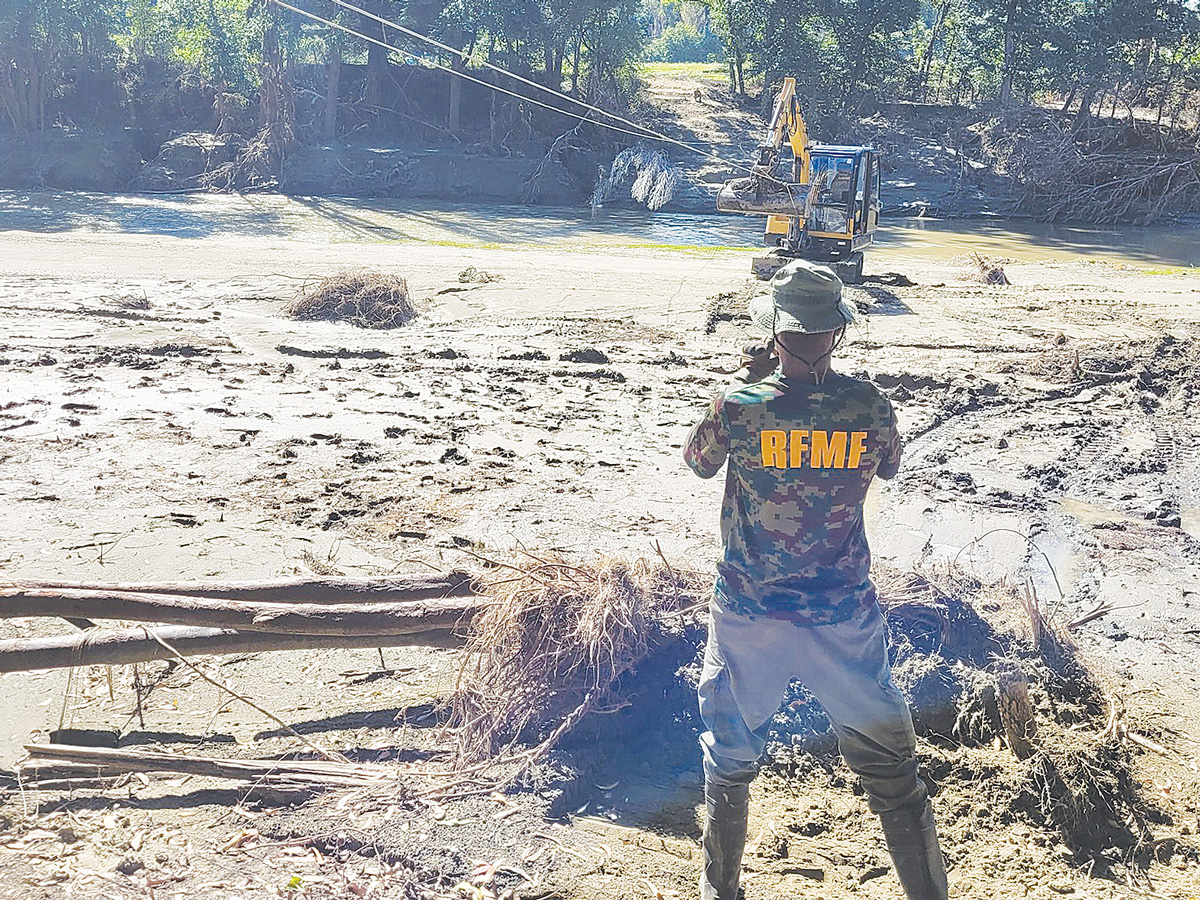Upper North Island Storms: Limited impact on dairy farms
For the most part, dairy farmers in the Waikato, Bay of Plenty, Tairawhiti and the Manawatu appear to have not been too badly affected by recent storms across the upper North Island.
Farmers and their advisors are scratching their heads trying to work out the best way to deal with metre deep silt that is sitting on top of high-quality lowland pastures in the Hawke's Bay region.
Phil Tither, AgFirst consultant in Hawke's Bay, says many of his clients are trying to come up with the best solution to deal with this problem. He says this difficulty is that no one has ever dealt with a situation like this before and any solutions are likely to be site or farm specific.
According to Tither, farmers on the flats are dealing with the issue of silt and sediment as well as debris which has been washed down from the hills by Cyclone Gabrielle.
"Hill country farmers also have pasture damage which may take time to fully repair. But for these farmers the biggest problem is damaged infrastructure, with fences still down, farm tracks badly damaged and in some cases, proper road access is still not restored," he told Rural News.
Tither says farmers around the Patoka area have been badly affected because the bridge at Rissington was down and this has prevented stock being moved off farm in a timely manner. He says some farmers have managed to get some stock out but are well behind their normal schedule to get stock to the works. Phil Tither says the good prices for stock has at least helped lift spirits.
He says somewhat perversely the heavy rain has resulted in bumper pasture growth and this had made it slightly easier for farmers who have been unable to get stock to the work.
"We've had a great autumn and pasture growth rates are some of the highest we've ever seen," he says.
 |
|---|
|
NZ and Fijian soldiers building a firefox pulley in Rissington last month. Photo Credit: NZ Defence Force |
Tither says hill country farmers are facing a massive task to get their farms back to anywhere near normal and it may take years in some cases to restore the cyclone damage. He says farmers have their heads down and are extremely busy and pushing themselves to the limit.
But he adds that the damage is quite random and farms just a few kilometres apart have not been hit badly while others are badly impacted. He says because of this, some people are able to start moving on while others remain in a crisis mode. For such people there is a high degree of uncertainty about their future.
He syas there is an obvious parallel with the Christchurch earthquake where people were left in a limbo not knowing what the future holds.
Rural News is aware that the local rural support trust has been busy dealing with the needs of individuals. One thing they have down which has proved popular and is well received is organising get-togethers for farmers and communities.
Dairy Women's Network (DWN) has announced that Taranaki dairy farmer Nicola Bryant will join its Trust Board as an Associate Trustee.
Rural Women New Zealand (RWNZ) says it welcomes the release of a new report into pay equity.
Red meat exports to key quota markets enjoyed $1.4 billion in tariff savings in the 2024-25 financial year.
Remediation NZ (RNZ) has been fined more than $71,000 for discharging offensive odours described by neighbours as smelling like ‘faecal and pig effluent’ from its compositing site near Uruti in North Taranaki.
Two kiwifruit orchards in the Bay of Plenty and one in Northland are this year's finalists for the Ahuwhenua Trophy competition.
The Government's chief science advisor, Dr John Roche says the key objective for the science sector in the coming year is bedding down the reforms which sees the merger of the previous entities.

OPINION: A mate of yours truly reckons rural Manawatu families are the latest to suffer under what he calls the…
OPINION: If old Winston Peters thinks building trade relations with new nations, such as India, isn't a necessary investment in…